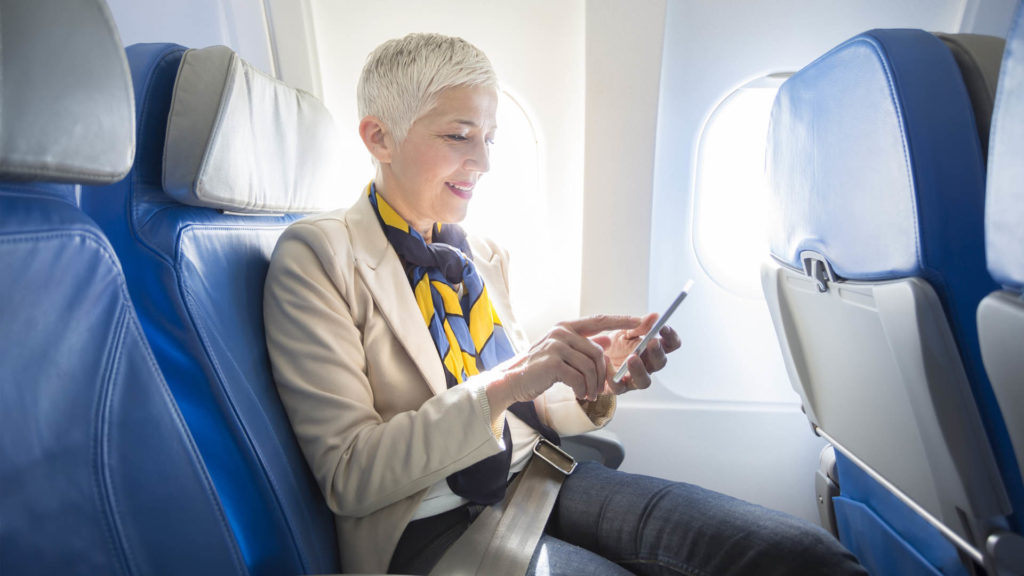
Airbnb vs. Hotels
Pros and Cons to Consider As An Older Traveler

As an older traveler looking to book overnight accommodations for your trip, it is helpful to know the differences, including any pros and cons, of booking with a hotel or with Airbnb, a service that lets property owners rent out their spaces to travelers.
For older travelers, the possibility of Airbnb scams might be troubling, such as:
- Deceptive or inaccurate property descriptions and doctored images
- Fake reviews
- Illegal listings
- And more
With hotels, alternately, the concern is often price. For example, after the pandemic, many hotels raised room rates to cover the high cost of goods and services.
For older travelers, there are pros and cons to both Airbnb and hotels. Where you choose to stay ultimately depends on the kind of vacation you want to have, and how you like to travel and experience a place. Consider the following factors when booking an Airbnb or a hotel.
Find What You Need
The Type of Accommodations You Want
Airbnb has more options now than ever for accommodations, including houses, apartments and specialty accommodations such as homes for art lovers. Airbnb offers the option of renting an entire house or a room within a residence. In theory, Airbnb’s residential units aren’t that much different from a hotel room. Like hotel rooms, Airbnb’s spaces provide a place to sleep and are cleaned between uses.
Airbnb’s larger spaces like a home typically offer amenities such as living rooms, kitchens, dining rooms, laundry facilities, and, in some locations, a place to park your car. While hotel suites can match some of these amenities, they often carry a surcharge over the price of a standard hotel room, making hotel suites costly.
Keep in mind when it comes to quality, hotels have far more oversight than Airbnb. This is a primary reason why hotels top Airbnb when it comes to quality. For example, hotels have 24-hour staff available to manage general operations and provide assistance with emergency situations—such as your sink getting clogged. During a hotel stay, you have immediate access to these workers, which is not always the case with Airbnb. Having a problem with the WiFi? Hotel staff can assist, whereas Airbnb will require you to contact the host. If the host is not immediately available, there could be frustrating lag time.
Hotels also have daily housekeeping while Airbnbs do not. Many Airbnbs tack on end-of-stay cleaning fees that are not built into their rates.
Airbnb does have a property designation called Airbnb Plus, which signifies that it has sent someone to personally vet the property. For first-time users or those that prefer a bit more quality control, Airbnb Plus properties are good options.
Some additional factors to keep in mind:
- Hotels have check-in desks, as well as staff who will give you a tour of the property and of your room. Airbnbs do not have check-in desks or onsite workers. Some travelers have even reported that checking into their Airbnb was difficult because the Airbnb was hard to find, in a remote area, or the keys were in a lockbox that is difficult to locate or open.
- With both hotels and Airbnb, photos for a room could look great online but appear completely different in person. Hotel photos may be stock photos, not pictures of the room you will actually be staying in, and Airbnb photos may be deceptively framed to make the space look bigger or more well lit. A good rule of thumb is the more pictures, the better! More pictures from different angles will give you a better sense of the space.
- Hotels will not cancel on you last-minute unless there is a major emergency such as a fire. Airbnb penalizes hosts who cancel reservations, but it happens and could complicate your trip, or even cause you to cancel your vacation since you would not have a place to stay. Or worse, leave you stranded at a destination if the host cancels day-of.
- Many hotels have concierges on staff who can help you make a dining reservation or suggest recreational activities based on your interests. At an Airbnb, a host may or may not be responsive to you asking for recommendations.
The Price You Want to Pay
Airbnbs are usually cheaper than hotels for longer stays and large groups. Hotel rooms can only house a few people, whereas you can rent a large space through Airbnb, like a whole house. Similar to some hotels, Airbnb can offer long-term stay discounts. However, consider that Airbnbs do not offer the same services as hotels, such as daily housekeeping or onsite 24-hour maintenance.
Airbnb advantages over hotels include:
- More space for larger groups, thus more people can stay at the Airbnb rental and split the cost.
- Kitchens that can be used to cook meals, which can be cheaper than going out for dinner.
- Free use of a washer and dryer compared to having the hotel clean any clothes, which can be costly.
Accessibility
For those using mobility assist devices such as a walker or wheelchair, accessibility is a major factor when choosing accommodations. Hotels are legally required to abide by the Americans with Disabilities Act (ADA) of 1990 that established a series of accessible design requirements for hotels and some additional types of lodging facilities. All hotels are required to have ADA-compliant tubs, mobility accessible rooms, and at least one room with both mobility features and communication features. Some hotels also have wheelchair-accessible showers. You can call ahead to a hotel you are considering to have them confirm what type of accessible accommodations they have, and if the rooms with these accommodations are currently available.
Airbnb is a service that allows people to rent out their homes and apartments, and private residences are not subject to the same type of ADA requirements as hotels and other public spaces. However, Airbnb has recently introduced new features that make it much easier to find rentals that are wheelchair and mobility accessible. Airbnb has over 20 filters that allow users to search for specific features, including step-free entry to rooms and entryways wide enough to accommodate wheelchairs. While searching, you are able filter available rentals to only show you ones that meet your accessibility criteria.
How Much Flexibility You Want
As an older traveler, having flexibility with your travel plans can be helpful, especially if you or a family member has been sick or is dealing with an injury that could prevent you from traveling after you made your hotel or Airbnb reservation. While travel insurance can help reimburse you for travel costs you lose due to having to cancel your trip, both hotels and Airbnb offer decent flexibility when making a reservation, with policies clearly laid out at the time of booking.
Many hotels have the option of a nonrefundable rate or an increased rate with more flexibility. Even with normal cancellation policies, some hotels are flexible with guests in the event of unforeseen circumstances like a sudden illness. Especially if you have documentation to back your claim, many hotels will agree to waive fees or allow you to change the reservation’s dates for no charge.
Airbnb hosts often set their own cancellation and refund policies, which are stated both on their listing page and during the booking process. You can also find Airbnbs that have both nonrefundable and refundable price options or you can set a filter to search for Airbnb listings that offer free cancellations. Learn more about Airbnb’s cancellation policies.
Do You Want to Earn A Free Stay?
With a hotel loyalty program, you will earn points based on every dollar you spend at the hotel, with bonus points for having elite status or if you are using a hotel-branded credit card. You can use these points to redeem free nights for future hotel stays. Depending on your status, hotels also offer perks like complimentary breakfasts or room upgrades.
While Airbnb does not have a robust loyalty program like hotels do, you can use credit card points to cover the cost of your stay. Some airlines, like Delta, allow you to earn miles when booking an Airbnb stay.
Is An Airbnb or Hotel Better for Older Travelers?
It is a common misconception that Airbnb is only for Millennials. As Airbnb has reported, over 60-year-olds are their fastest growing age group, both as hosts and guests. If you are looking for a unique experience or an extended stay with facilities such as a kitchen and a washer and dryer, Airbnb has plenty of options.
Airbnb also has introduced ways to help guests find and book accommodations and activities that meet their disabilities. Under an accessibility review process, Airbnb hosts submit photos of the accessibility features in their home, which are then manually reviewed by a specialized team of Airbnb agents. This way, guests can be confident that the features listed by hosts have been confirmed by a team of specialists.
Keep in mind that hotels are a safer bet when it comes to quality, consistency, and the ability to save money in the long run.





